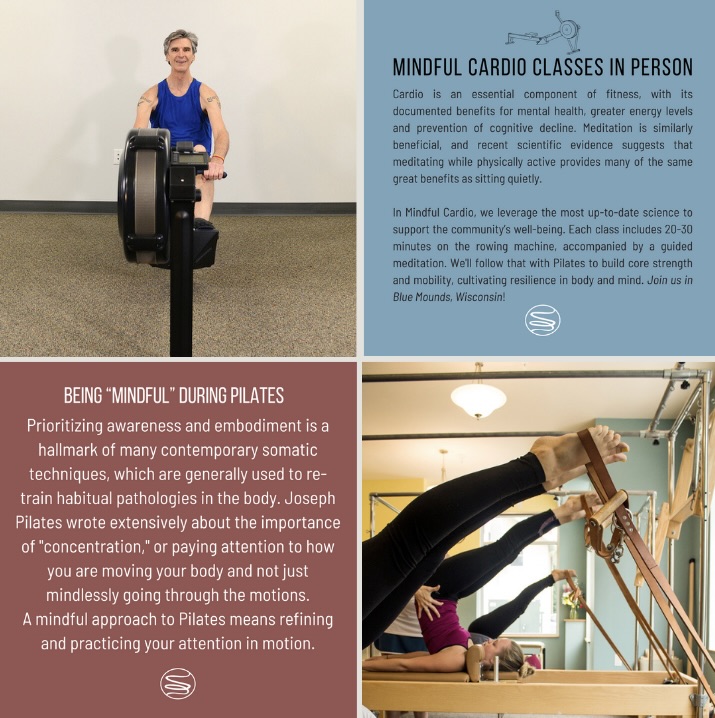Reluctant Enthusiast
I first heard this expression from the late Edward Abbey in a speech twenty or so years ago. It struck me as odd – sort of along the lines of describing somebody as being obesely thin, or slender despite their overweight. This phrase may have made good art (poetry), but I didn’t see its applicability to our day-to-day existence.
As the years go by, however, "reluctant enthusiast" took on greater relevance, at least with regards to how I view this practice of yoga. This fall it’ll be twenty-six years since I first plugged that auspicious meditation tape into my cassette player. In the intervening years I’ve moved around, explored various avenues, tried various ways-of-being, yet always the practice remained. Sort of like an old friend who sticks by you no matter how strange you act.
There was a period of about 12 years where I practiced every day for at least a couple hours. Sometimes I practiced in the airport (lots of stares); I would practice while sick (didn’t help the nausea). And while in graduate school, I'd set the alarm for 3:30am to practice yoga before catching my 6am bus to campus (fell asleep on the bus & missed my stop). I’m grateful for the hours I’ve invested in the practice, though in retrospect, I view that era as one driven by a neurotic mind state...a practice driven more by fear than by hope.
Regular practice is important. Daily practice, however, is often the province of neurosis. Yoga is a pursuit of body, mind and spirit. For most of us, it’s also a path of the householder – meaning we are still engaged with worldly activities such as job, family and home. As householders, our yoga can be put into practice most every moment of our waking life; remaining flexible of mind, open-hearted, and keeping our feet on the ground. The yogic techniques are simply a container for this inquiry – useful, but not imperative.
Do try to make the time for daily regeneration. The yogic path gives us a well-worn trail in this regard; Patanjali’s 8-fold path remains a reliable guide for maximizing this human experience. Be easy on yourself, however, when it doesn’t come to pass. Your kid’s choir concert? Appreciating your child’s joy may be a greater opportunity for yogic advancement than the same time spent standing on your head. The paint is peeling off your house? Stressing out about your yoga practice while you’re painting your house means you’re not present for either activity.
The healthiest approach to the practice of yogic techniques is that of the reluctant enthusiast.
Do not burn yourself out – be as I am, a reluctant enthusiast.
Thank you, Edward Abbey, for these wise words.
As the years go by, however, "reluctant enthusiast" took on greater relevance, at least with regards to how I view this practice of yoga. This fall it’ll be twenty-six years since I first plugged that auspicious meditation tape into my cassette player. In the intervening years I’ve moved around, explored various avenues, tried various ways-of-being, yet always the practice remained. Sort of like an old friend who sticks by you no matter how strange you act.
There was a period of about 12 years where I practiced every day for at least a couple hours. Sometimes I practiced in the airport (lots of stares); I would practice while sick (didn’t help the nausea). And while in graduate school, I'd set the alarm for 3:30am to practice yoga before catching my 6am bus to campus (fell asleep on the bus & missed my stop). I’m grateful for the hours I’ve invested in the practice, though in retrospect, I view that era as one driven by a neurotic mind state...a practice driven more by fear than by hope.
Regular practice is important. Daily practice, however, is often the province of neurosis. Yoga is a pursuit of body, mind and spirit. For most of us, it’s also a path of the householder – meaning we are still engaged with worldly activities such as job, family and home. As householders, our yoga can be put into practice most every moment of our waking life; remaining flexible of mind, open-hearted, and keeping our feet on the ground. The yogic techniques are simply a container for this inquiry – useful, but not imperative.
Do try to make the time for daily regeneration. The yogic path gives us a well-worn trail in this regard; Patanjali’s 8-fold path remains a reliable guide for maximizing this human experience. Be easy on yourself, however, when it doesn’t come to pass. Your kid’s choir concert? Appreciating your child’s joy may be a greater opportunity for yogic advancement than the same time spent standing on your head. The paint is peeling off your house? Stressing out about your yoga practice while you’re painting your house means you’re not present for either activity.
The healthiest approach to the practice of yogic techniques is that of the reluctant enthusiast.
Do not burn yourself out – be as I am, a reluctant enthusiast.
Thank you, Edward Abbey, for these wise words.



Comments